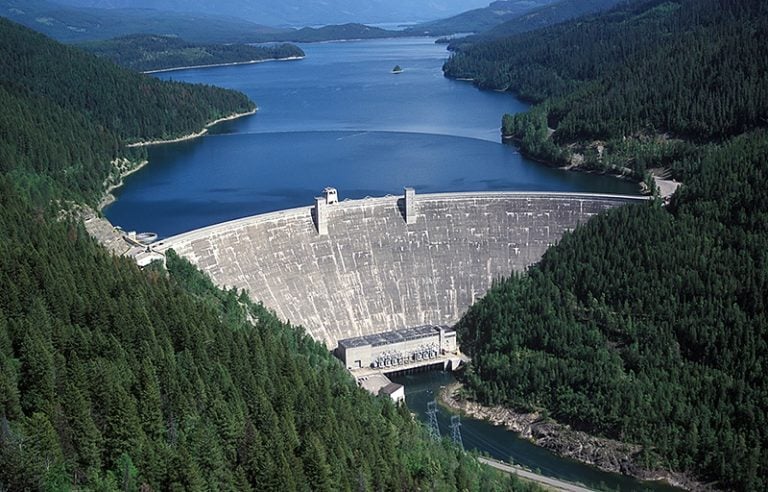
Threats from the hydropower industry have increased in recent years and right now there are more than 30 bills in Congress that impact how dams are built and regulated on our rivers. While dam owners would like us to believe that hydropower is a “clean” technology, the truth is that dams hurt rivers and the communities that rely on them.
Companies want to build dams and divert rivers as quickly as possible and claim that the dam permitting process causes delays in projects. Catering to this industry, the proposed “Water Supply Permitting and Coordination Act” (S. 677) would create a shortcut by making the review process for a proposed dam faster and less thorough. It would significantly limit meaningful public and environmental review of new dams and other storage projects. It also could lead to a rushed, incomplete review before a dam is built, which could have devastating consequences.
S. 677 would undermine laws necessary to protect waterways, endangered species, and communities, including the National Environmental Policy Act and the Endangered Species Act. The legislation would designate the U.S. Bureau of Reclamation as the one and only Federal agency in charge of overseeing all environmental reviews and permitting of surface water storage projects, giving the Bureau unprecedented power, likely leading to less thorough reviews. The fast-tracking provisions in the bill could not only make it difficult for agencies to fully analyze the impacts of proposed projects, but also could significantly limit the public’s ability to weigh in on infrastructure that would impact communities for decades. S. 667 would also allow states to simply cede their permitting authority to the federal government, including their duty to review the water impacts of the project. All of these provisions would reduce protections for fish and wildlife and increase the damming of our waterways while giving communities less of an opportunity to voice their concerns.
Please call your Senators and urge them to vote NO on Senate Bill 677 to prevent further destruction of our waterways.
“My name is [YOUR NAME] and I live in [YOUR STATE]. I urge you to oppose Senate Bill 677, the Water Supply Permitting and Coordination Act. This bill would harm our rivers by giving sole federal permitting authority to one agency that does not have expertise in protecting water quality or safeguarding fish. The bill would fast-track permitting when instead agencies should carefully review all potential impacts of a proposed dam and gain stakeholder input. It makes no sense to shortcut the review process for infrastructure projects that could have serious consequences for both communities and waterways for generations to come. Please stand up for our rivers and vote NO on Senate Bill 677.”
[CongressLookup show=”senator”]
More on hydropower:
All power generation – including energy generated from renewable sources – impacts local ecosystems and communities. There is a tendency, however, to turn a blind eye to these impacts and treat all renewable technologies as unconditionally good because they do not burn fossil fuels. Renewable power must be sited, designed, and operated in a manner that also protects the local ecosystem.
Hydropower dams are a significant source of water pollution. Dams alter the temperature and chemical makeup of water that is impounded behind and released through dams, harming the biological integrity of river ecosystems. Many hydropower dams also discharge pollutants such as turbine oil into waterways. While hydropower generally does not rely on fossil fuel, dams can lead to significant greenhouse gas emissions in the form of methane released from the reservoirs they create.
Hydropower dam operations are responsible for the extinction and near-extinction of a number of species and are a major contributor to the significant loss of aquatic biodiversity. Hydropower plants often divert water and create false drought and flood conditions that have rippling effects. Hydropower dams have flooded forests (causing the irretrievable loss of carbon sinks), damaged entire fisheries, and diminished recreational opportunities, and decimated the local – mostly rural – economies that depend on those resources. And while dams and reservoirs provide significant benefits for human populations, they are also threats to water supplies by promoting massive evaporation loss.
The extent of this damage can be much greater when combined with a whole host of other threats to rivers: poor water quality, a growing demand for scarce water, encroaching urbanization, and poor land-management decisions.
For more information on hydropower, visit the Hydropower Reform Coalition here.”
* Photo: Bureau of Reclamation